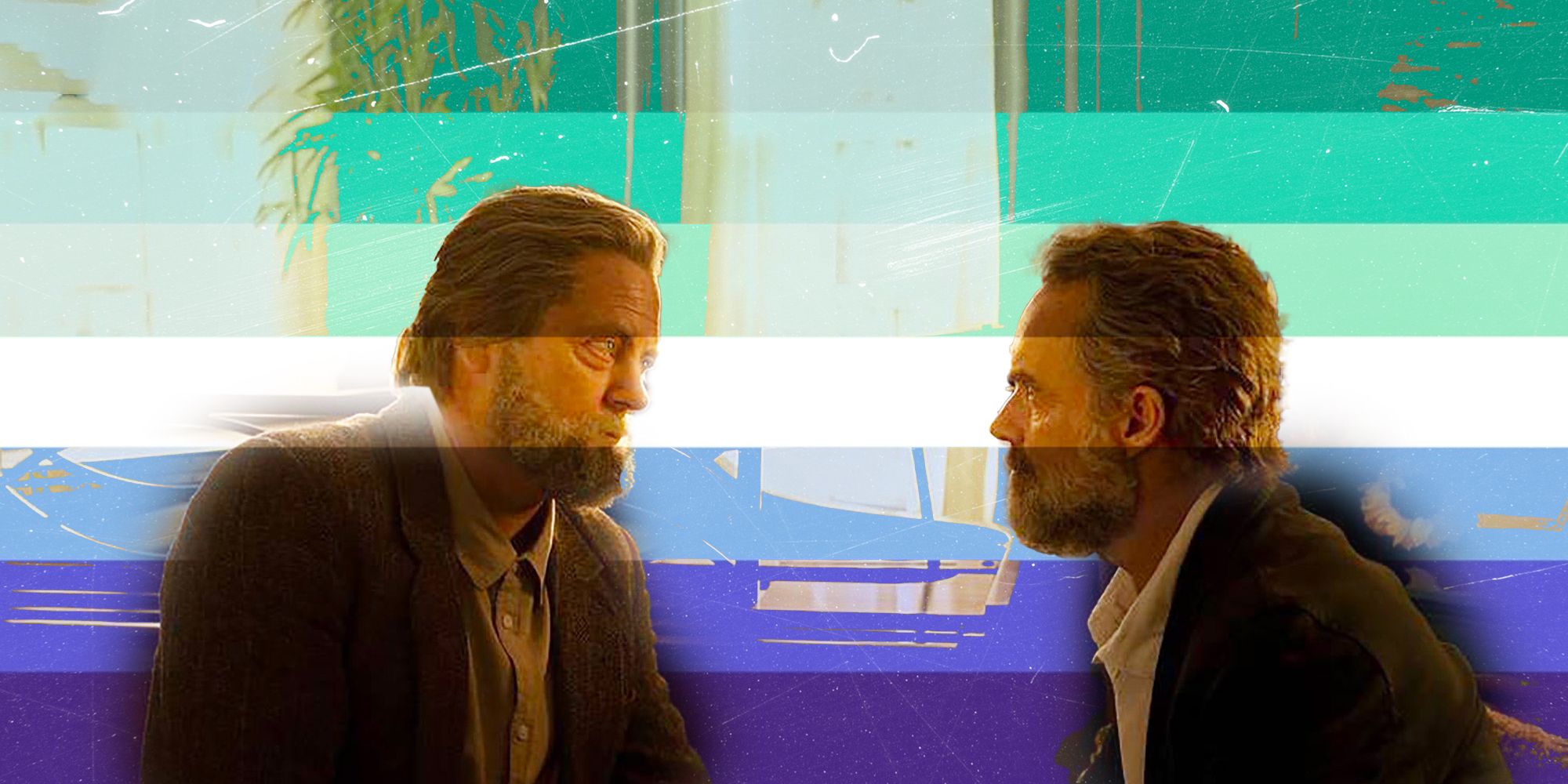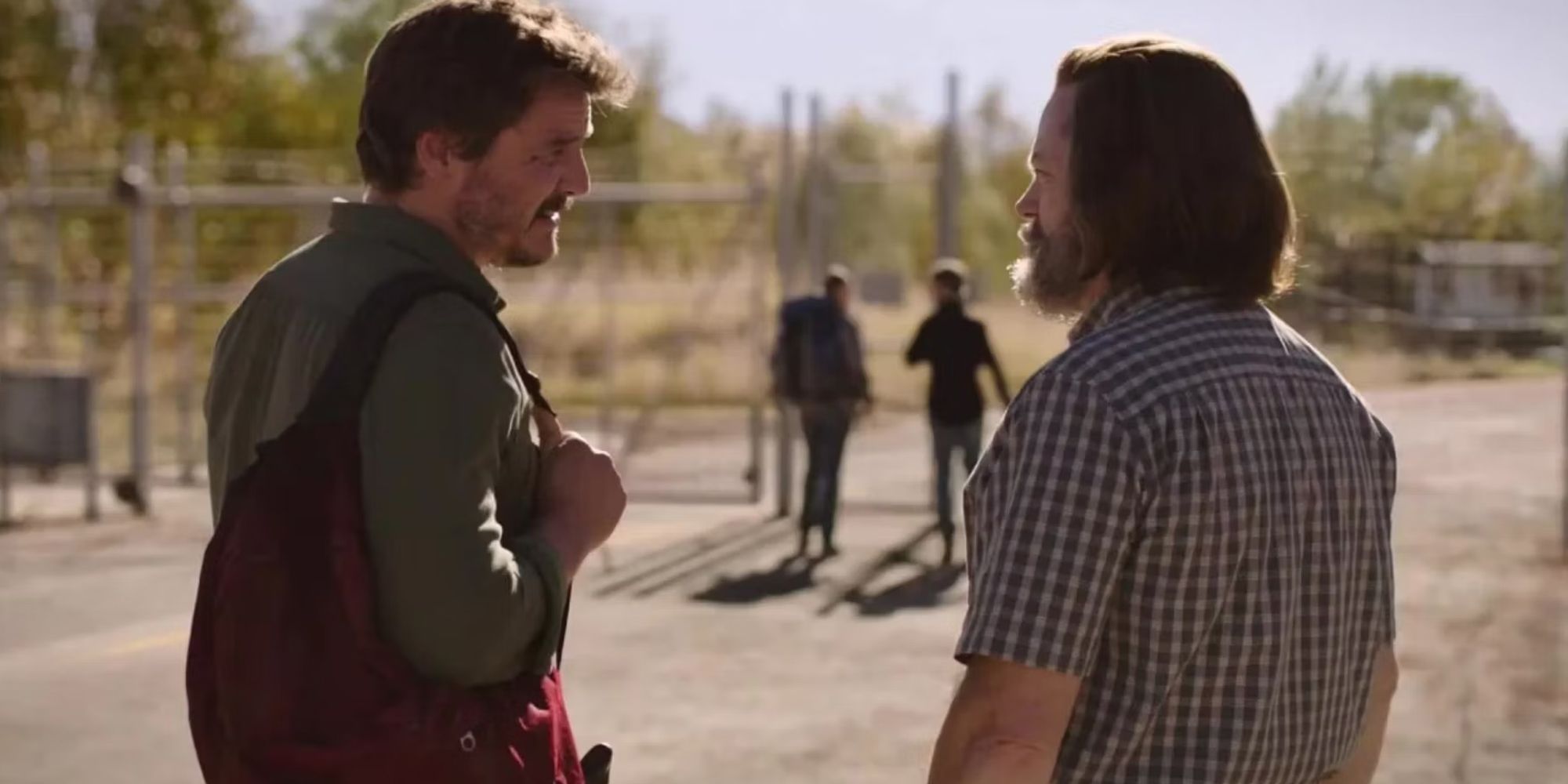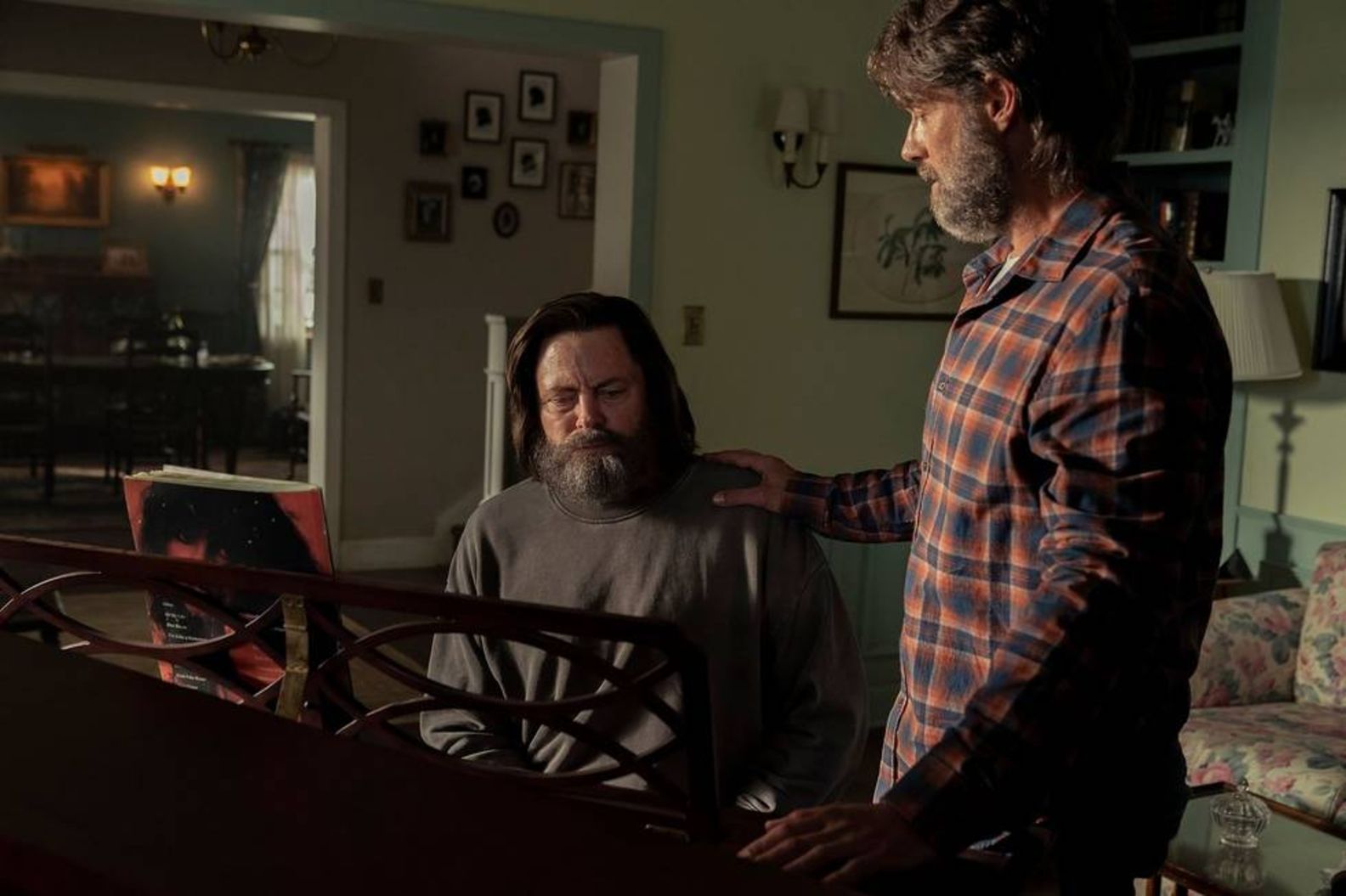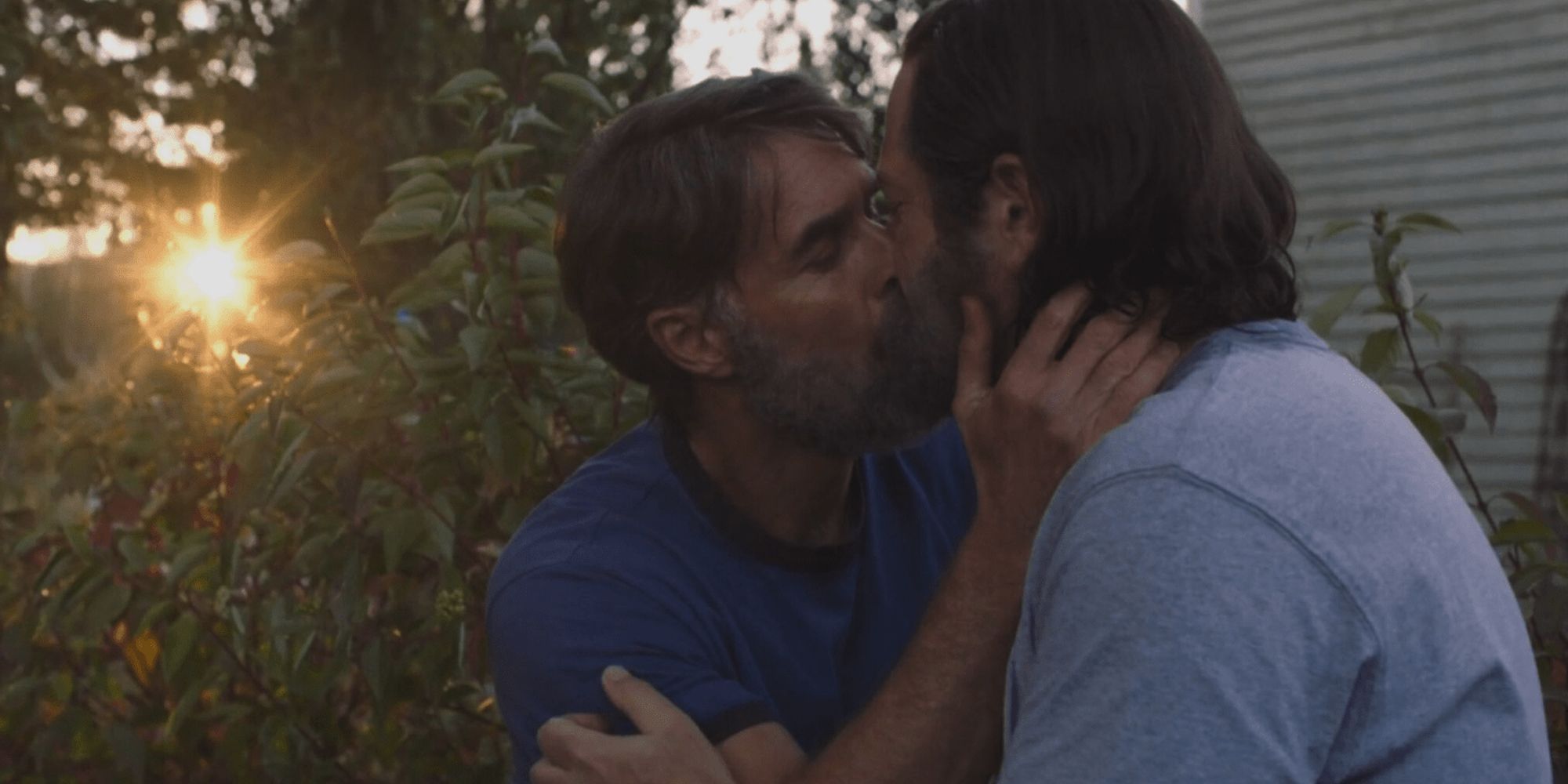Queer audiences have grown accustomed to pandering and misery. LGBTQ+ characters are often put through hell in order to find happiness or accept their desired identity, or else coddled in ways that straight characters are not. Ignorant and well-meaning straight, cisgender creators have applied a heteronormative restriction on such stories that we have only begun to usurp in recent years.
The Last of Us was a victim of this habitual mistake, and when you consider how the sequel is afraid to speak the words ‘lesbian’ and ‘transgender’ despite so many of its themes and characters being entrenched in queerness, maybe it still is. Naughty Dog should be proud of this progress and screaming about it from the rooftops. Instead, it beats around the bush to avoid fully elevated diversity and progress it should be determined to celebrate.
That trajectory is changing though, with Bill and Frank’s romance in the series’ latest episode acting as an apology from the studio after years of notable shortcomings. Left Behind was a big step forward for queer representation in triple-A gaming ten years ago, with Ellie unveiled as a lesbian character while we watched a romantic relationship blossom between her and Riley. For mainstream audiences this might have been something they hadn’t been exposed to before, even more so when the main game was less definitive about Bill’s identity. Ellie, a character we had come to adore and empathise with, was queer, and nothing could take that away.
To see this revelation immediately dampened by the death of Riley and reinforcement of the bury your gays stereotype was a bitter pill to swallow, even if the version of me who played it back then wasn’t informed enough to see where it all went wrong. These two girls had found a sliver of happiness in the apocalypse only for it to be snuffed out immediately. Straight characters aren’t immune to this tragedy, but seldom is it framed as a fatal twist regarding their identity, or used as a motivator for character growth tied so intrinsically to sexuality. Joel loses Tess and the grief is palpable, while Ellie’s loss of Riley is preceded immediately by her coming out of the closet. We are still processing both of these things as the credits roll, and thus the two are connected whether we want them to be or not. For queer players, that always stings.
Ellie and Riley’s tragedy felt avoidable and spiteful, taking agency away from two queer characters at a time when they needed it most. We’ve seen this trope perpetuated for decades either on purpose or by accident, countless instances slipping through the cracks until one example came along to question them. The Last of Us had a chance to be that milestone, and it failed, and now it’s been given a second, the opportunity hasn’t been wasted. Bill and Frank’s romance in the HBO series is the sole focus of an extended episode where vague world building and a nasty breakup followed shortly by suicide is replaced by a heartbreaking slow burn where their lives together are given significant weight and meaning.
The two men meet, fall in love, and find a purpose in life to protect one another. Surviving in the apocalypse isn’t easy, but the challenges are worth it when the end goal is keeping a loved one alive you are determined to spend time with. The episode is strangely wholesome and free from turmoil for much of the runtime, with the biggest challenges coming from a single raider attack and convincing Bill to stop being stuck in his doomsday prepper ways. I can’t help but view this suburban mundanity as deliberate though, the show capturing what Ellie and Riley could have had if life went a certain way. It’s a parallel reclamation of queerness The Last of Us hasn’t afforded its universe before, abandoning the apocalypse for miniscule pockets of time for these two men to savour one another’s company doing the simplest of things. No matter how adorable their bond becomes, it still ends in their collective demise.
An earned expression of death that two queer characters decide to embrace on their own terms, not through a wayward infection or a knife twisted through the back to stifle who they are. Making a suicide pact in the name of romance is cheesy and overwrought, and for us to think that is exactly the point. Mainstream media is still so hesitant to tell a tale of two men falling in love who aren’t conventionally attractive or ticking all the sanitised boxes to appeal to wider demographics. The Last of Us hasn’t been free from this bigotry, although the continued praise poured upon Bill and Frank is a clear sign that the majority care so much for them, and outsiders are to be cast aside and ignored.
When it comes to even good representation, queer audiences can cry foul if a story treats characters badly or puts them through unjust torment. However, similar complaints are so frequently levelled at media that does the opposite, treating queerness like a smooth ride through life without any hardships that represent our reality. We are perfectly within our rights to bring bad representation to task, but painting all attempts with an unjust brush will only hurt ourselves, and recognising that divide is a tough conversation we are still to have. Queer representation isn’t a competition nor a battleground, and never did I expect The Last of Us to kickstart this conversation. Here we are though, talking about the death of two queer characters in positive terms, because the choice was theirs to make.
Being queer is messy, beautiful, and filled with twists and turns humans aren’t able to predict - and that brilliance is shown throughout Bill and Frank’s relationship before culminating in a shared passing that justifies its own tragic circumstances. Love in the time of the apocalypse is probably hard to come by, doubly so for LGBTQ+ people, so everything it brings to the table should be savoured. When your time is coming to a close and the decision to live apart or shut the book as a unit is presented, I hardly think it’s a betrayal of who we are as people to find more value in an earlier death fulfilled than a continued existence defined by emptiness. Ellie and Riley didn’t deserve the fate that befell them, but when it comes to Bill and Frank, a chance to choose how their spark goes out turns what was once a disaster into something precious.




